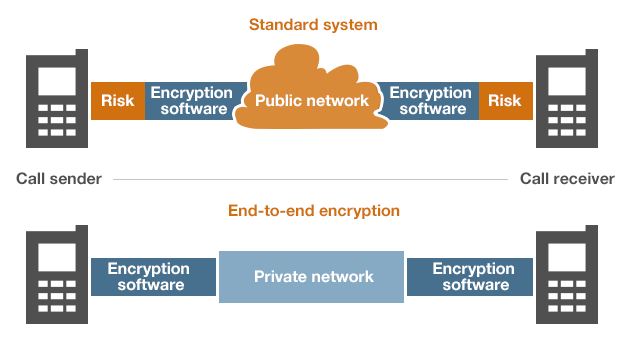WhatsApp embraces open source, a lot more secure with this new update
Did you also come across that famous spam message on WhatsApp about Telegram being a ‘Made in India’ app? That same spam message also had a line mentioning that WhatsApp messages aren’t encrypted rendering it as not safe platform for interactions.
But now WhatsApp has come up with an update to assure users of their privacy and move away from the various threats from Governments to share user’s communication data. If you trace the history of WhatsApp founders back to Russia, it should make you believe that they don't trust their government machinery and its shadowing over the citizens of the country. This new update from WhatsApp reiterates their towards ensuring the anti-snooping promise to their 500 million users worldwide.

If you may have noticed, the most recent WhatsApp Android app update includes support for the TextSecure encryption protocol. What it means is billions of encrypted messages are being exchanged daily and you don't need to be worried about these messages. As of today, WhatsApp’s Android app does not yet support encrypted messaging for group chat or media messages, but the team is rolling out support for those next. Considering the incredible number of mobile platforms WhatsApp runs on, this whole update for end-to-end encryption seems to be massive task in itself.
What is 'End-to-End' encryption?
Today, we have been hearing a lot about various snooping cases by Governments across the globe over these messaging apps. Most companies want to avoid being controlled by these government norms but then they don't have the required security protocols in place to overcome this.

What ‘End-to-end’ encryption simply means is WhatsApp won't be able to decrypt the messages itself even if the law prosecution compels Facebook. WhatsApp will set up the key exchange between users, but only among the users involved in the conversation will access to it. Among the most popular messaging apps that adhere to end-to-end encryption is Telegram that has more recently seen a spike in its user base.
Why Open Whisper Systems?
Open Whisper is the same startup that Twitter had acquired way back in 2011 that is looking after the end-to-end encryption of WhatsApp. Post acquisition, the TextSecure software code base was made available to public as free and open source. Their code base has been publicly inspected several times and has endured all such attacks successfully, getting the app a trust across various security groups. Open Whisper Systems has been fairly popular for their various apps including the likes of Redphone, TextSecure and Signal.
TextSecure’s unique forward secrecy feature pegged WhatsApp to implement their system to make itself secure. Forward secrecy assures that the messages are encrypted even if some hacker tries to break into the system at any given time too.

Open Whisper has said the team will continue improving its in-house apps, but the company also expects to take on more integrations like this one in the future. The team has enormous praises for WhatsApp for its dedication towards devoting considerable time and effort to this project. They have great admiration for the WhatsApp team, they have mentioned in their blog post -
Brian Acton and the WhatsApp engineering team have been amazing to work with. Their devotion to the project as well as their thoroughness in getting this done are inspiring in a world where so many other companies are focused on surveillance instead of privacy.
Even though this update is in its infant steps, but the result is unattackable encryption for 500 millions+ users that have Whatsapp installed — the largest-ever implementation of this standard of encryption in a messaging apps in history globally.
Would be interesting to see what Narendra Modi has to say about this move? His council of ministers are trying to add filters to the web and trying to get control over messaging apps in India.







